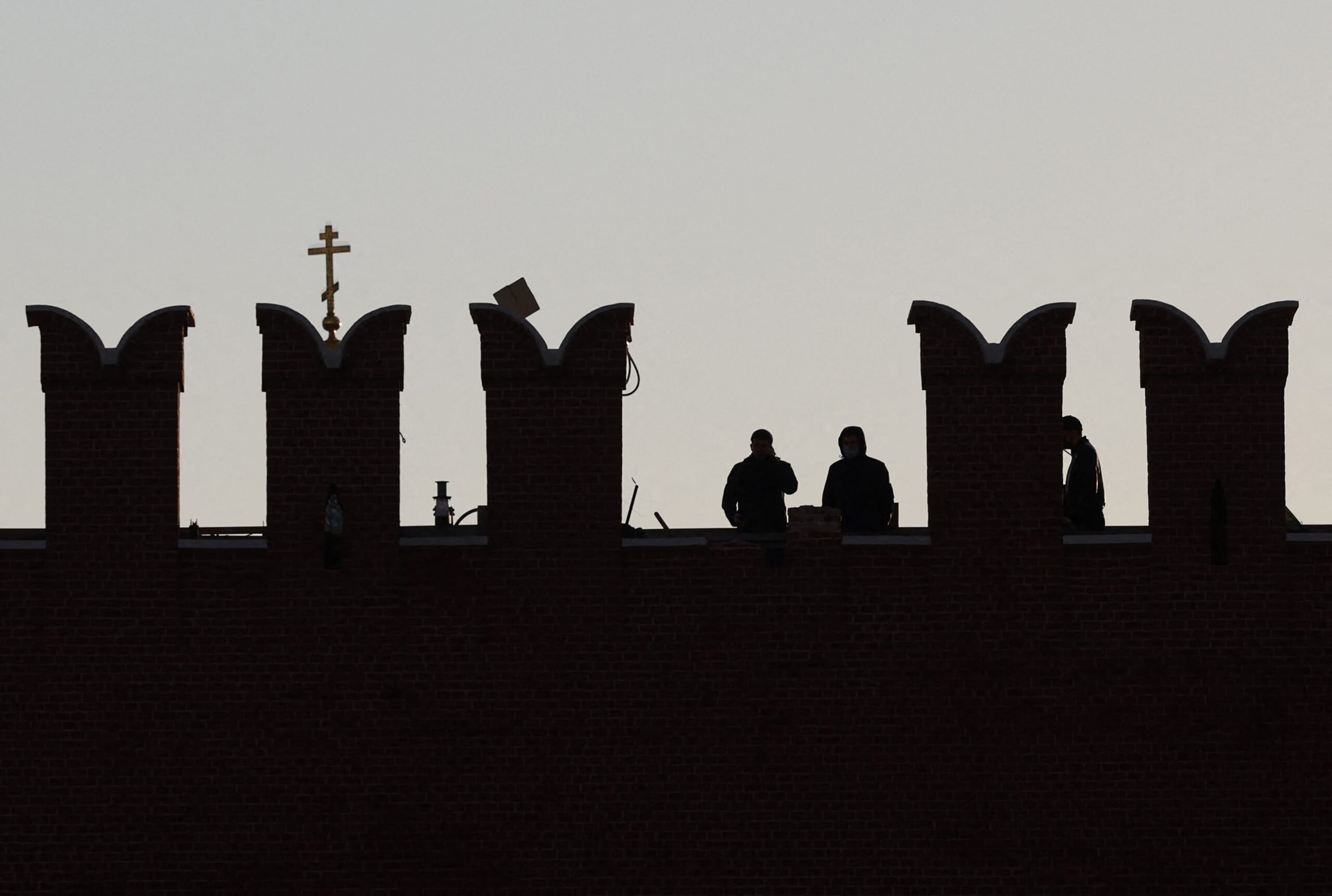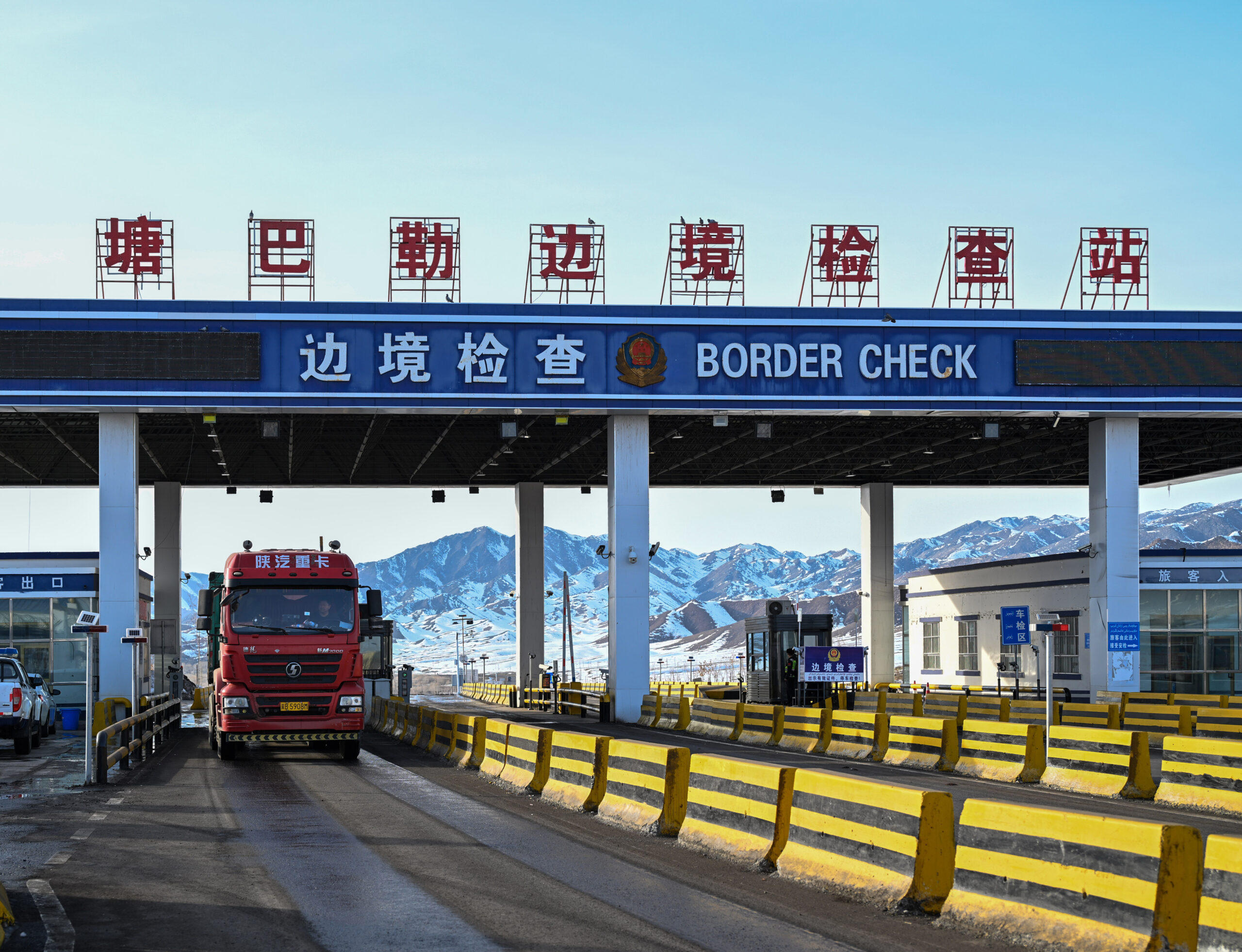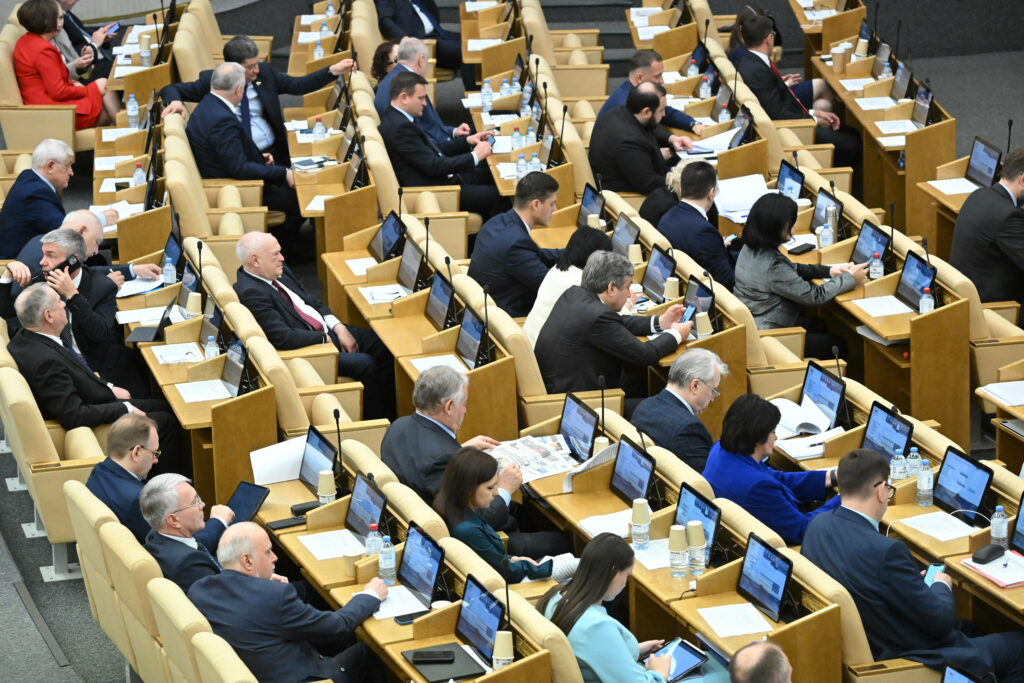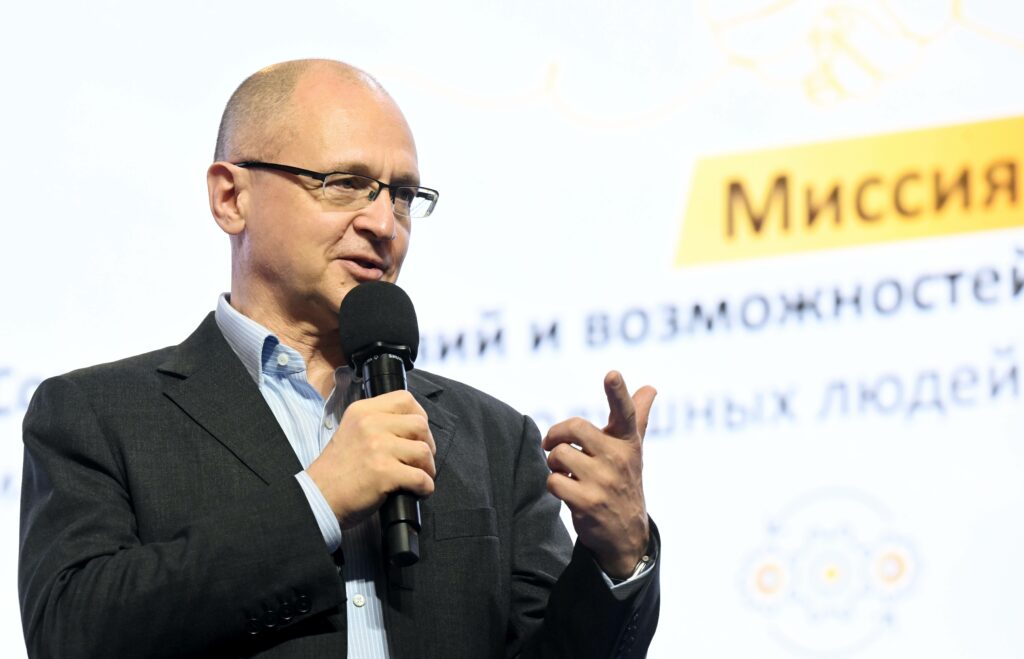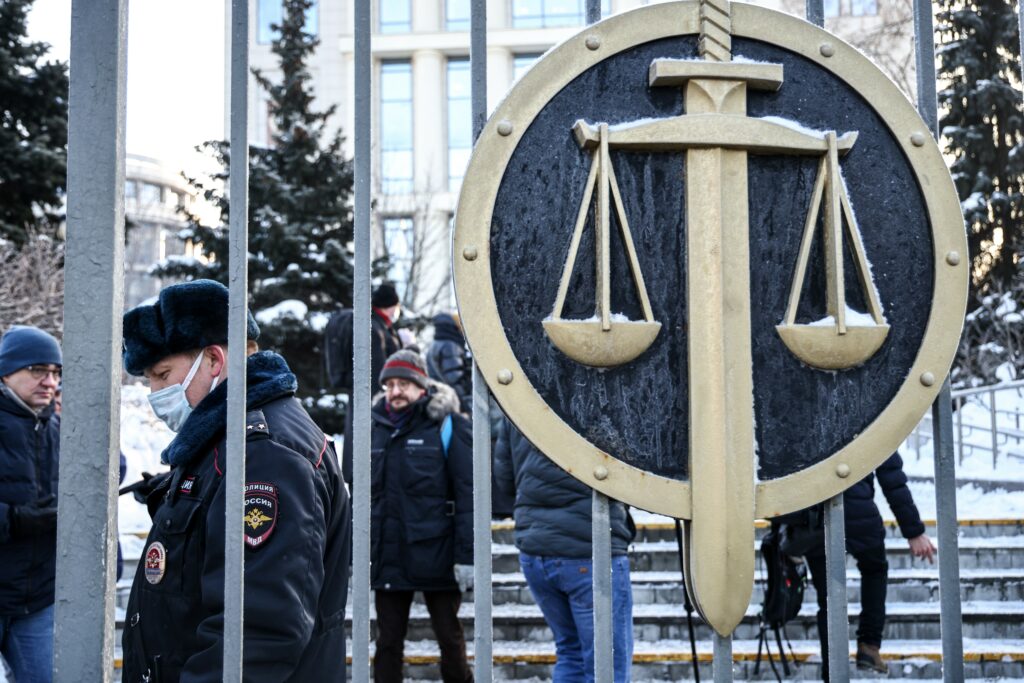For months now, there have been indications that Russia intends to draw out this war. Putin’s goals — chief among them the cessation of Ukrainian statehood — were thwarted from the start but are not abandoned. However, there is no path left for Russia to accomplish its aims—in the short term at least. Russia has failed to capture Kyiv, failed to inflict a definitive defeat to Ukraine’s armed forces, or even to push them from the Donbas. Putin may now only choose which defeat to endure and what consequences to suffer.
The consequences of the war are already felt in Russia. The economy is set to contract as much as it did during the Soviet collapse. The war also ended many of the already weak civil liberties of Russia’s citizens, who now live under de facto martial law. Some have speculated that defeat will lead to a Russia without Putin. Others argue that one-man-rule will continue with Putin at the helm, though weakened. Others have argued that Russia’s defeat, economic collapse, international pariah status and increased Russian chauvinism will bring an end to the Russian Federation itself.
The possibility of a collapse of the Russian Federation along the lines of the Soviet collapse has been a feature of commentary on Russia since December 1991. Every now and again these views resurface, and Russia’s evident failures in Ukraine have brought similar theories. Given the unprecedented scale of the war and the profound consequences it is to bring, the argument on Russia’s imminent collapse deserves scrutiny. Are the forces of collapse already at play in Russia?
Why would Russia collapse
Those arguing that Russia will collapse tend to deploy a two-step argument. First, the worsening economic situation will render the federal centre unable to maintain elites or keep the population acquiescent, entering a spiral towards dissatisfaction and conflict. Second, the enduring cultural differences between the Russian majority and the federal minorities will become even more strained under economic hardship, leading secessionist sentiments to rise.
The Russian economy is set to suffer. Russia is highly globalised and with trade making up a large part of GDP. Compounding sanctions, oil embargo and isolation in general are pushing Russia to an economic contraction in the order of magnitude to its other recent historical crises. As Maximillian Hess argued, the country’s baseline scenario may be a 1918-style economic unravelling. It is tempting to draw a parallel with the recent past: the Soviet Union faced economic stagnation since the late 1970s and then accelerated economic dysfunction by the end of the 1980s; similarly, Russia’s GDP has stagnated since 2014 and now faces collapse to the tune of over ten per cent of GDP in 2022. Indeed, there is doubt whether Russia can afford the war, and soon we will wonder whether it can afford to subsidise its many regions dependent on the federal budget.
These economic troubles will inevitably affect Russia’s minority regions. Russia is an ethnic federation, a system many regard as especially vulnerable to secession as Yugoslavia and the Soviet Union itself showed. Russia has twenty-two ‘autonomous republics’, each of which has a ‘titular nationality’ for whom the republic is their designated ‘homeland’. Each of these have different cultural affinities connecting them with other countries, like the Karelians with the neighbouring Finns, the Komi with the broader Finno-Ugric group, or the Tuvans with Mongolia. Expressions of secessionist sentiments have been censored in Russia for years; despite that, they can still be found, especially online.
The perestroika era showed how distinct groups in the federation may mobilise or demand independence. Back then, many non-Russian Soviet citizens demanded more rights, including cultural rights. Many of these demands focused on the status of their ‘homelands’, often progressing to outright demands for independence by 1990. Such was the case of Karakalpakstan in Uzbekistan, Chechnya in Russia, Estonia, Latvia and Lithuania, among many other Soviet constituents. The extreme degree of centralisation in federal relations may not prevent secession at all; the Soviet collapse happened under an even more centralised regime. Military defeat and economic collapse can offer these sentiments a chance to be propelled to the forefront once again.
Why Russia would not collapse
Yet some argue the analogy falls apart, as the Soviet collapse must be put into another perspective. The background of economic stagnation, political turbulence and social mobilisation can be considered the material cause of the Soviet collapse. The efficient cause was arguably tied to the Gorbachev factor. He earnestly sought to transform the system but failed to enact his reform agenda and preserve Soviet authority. As historian Vladislav Zubok argues, as late as 1988 and 1990 there were opportunities for Gorbachev to act but these were squandered by his hesitancy. In other words, there was contingency in the Soviet collapse.
Generally, leaders in multicultural countries have options to deal with secessionism, like coercion and power-sharing. Whatever leadership Russia will have by the end of the war in Ukraine may find ways to handle the discontent better than Gorbachev did decades before. More broadly, the Russian Federation may be better suited to withstand the kind of pressures that the Soviet Union faced at that time. There can be no Yeltsin to Putin’s Gorbachev as there is no equivalent Russian ‘core’ region to take the place of the RSFSR.
Second, there is the argument about Russia’s minorities. The Russian collapse argument relies on an essentialist view of Russia’s minority groups that regards them as always desiring full independence and ready to act on it were the opportunity to present itself. However, like the rest of the Russian population, the interest in politics among Russia’s national minorities is anaemic, a trend becoming more acute since 24 February. Those who are interested in politics have a range of positions, including pro-Putin and pro-Russia. Indeed, it was in recent memory that Russia’s leadership opted for policies of inclusion of Russia’s minorities as minority elites were empowered by the federal centre or otherwise allowed into federal politics. Similarly, there was an effort — especially during the short Medvedev period — to increase the feelings of belonging to Russia among the country’s national minorities. While short lived, the memory of these policies may convince at least some in Russia’s minority communities that the federation is capable of accommodating them. Generally, nationalism is not the default in ethnic federations.
Beyond the Chechen exception
The best-known case of potential secession in Russia today is Chechnya. To a degree, the region has already left the federal order as it is governed according to the interpretation of Chechen customs made by its despotic ruler, Ramzan Kadyrov. But Chechnya is an outlier. Russia’s regional elites are co-opted into the system, made dependent on it to rule. Putin’s patronage networks have made the emergence of parallel or competing power poles inside Russia — especially to the extent that they can challenge Moscow — an impossibility.
There is no doubt that Russia’s defeat will bring new transformations to the country, and all of Russia’s transformations run through in part at least its minority constituents. But these transformations will not resemble those of the past, be it in the economy or in federal relations. The past can also point to other potential outcomes. Russia’s 1856 defeat in Crimea did not lead to collapse but to reform. A post-war, post-Putin reform movement could find a solution to many of the country’s constitutional issues, leading to a regime that rules by consent and through power-sharing with its national minorities. We can only hope that such an outcome is in store.
